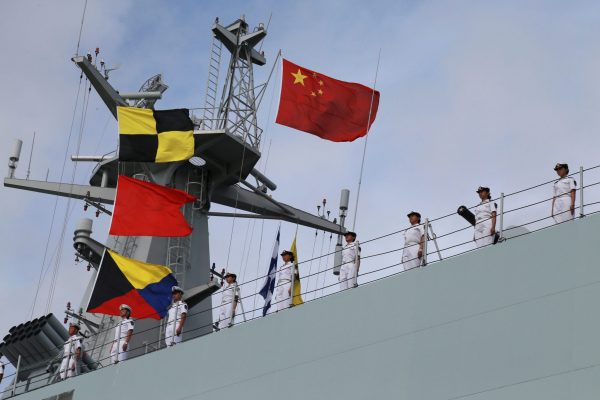While reports of Chinese construction on the base surfaced in 2017, this is the first time that the Chinese government has openly acknowledged these activities.
The fact that China is expanding its base in Djibouti is not particularly surprising. China has growing interests in East Africa and the Indian Ocean. Beijing has explicitly given its navy a mandate to defend those interests, and it now possesses a military base in the region capable of supporting those efforts.
Not only is China’s base in Djibouti poised to serve as a launch pad for China’s navy to play a larger role in the region, but also perhaps as a ‘laboratory’ where China’s navy can learn from experience about using foreign military facilities to protect overseas Chinese citizens and commercial interests. Such lessons might influence where China builds its next overseas base, in the likely event that it does so.
China’s decision to establish a military base in Djibouti was a long time coming. The Chinese navy has had an almost continuous three-ship counter-piracy taskforce in the Gulf of Aden since late 2008. This taskforce protects China’s growing maritime trade between Europe and Asia.
By 2017 the amount of crude oil exported by ship to China from Africa and the Middle East had grown to 5.25 million barrels per day (62 per cent of China’s total crude oil imports) — up from 2.88 million barrels per day in 2008. China’s capital exports to Africa are on the rise as well. China’s stock of overseas direct investment in Africa more than doubled between 2011 and 2015 from US$16 billion to US$35 billion. China also extended loans totalling US$63 billion to African nations for power, transport and other projects over the same period.
This growth of investment in and lending to Africa has contributed to an increase in Chinese citizens on the continent. Official Chinese statistics show that from 2011 to 2015 the number of Chinese citizens working in Africa increased from 180,000 to 264,000, while unofficial estimates of the overall number of Chinese citizens in Africa range from 1 to 2 million. China also continues to be a large contributor to UN peacekeeping efforts in Africa — particularly in South Sudan, where Beijing has invested billions in the oil sector.
As China’s economic interests in the region grow, the country’s leadership has given a mandate to its military to protect those interests. Nowhere is this more clearly articulated than in the Chinese government’s 2015 defence white paper China’s Military Strategy. This document unveiled China’s new naval strategy, dubbed ‘near seas defence, far seas protection’. In short, China has given its navy a mandate not only to protect China’s territorial claims but also to ‘protect the security of strategic sea lines of communication and overseas interests’.
The establishment of China’s base in Djibouti astride the Bab-el-Mandeb — the key chokepoint connecting Asia and Europe — greatly improves the Chinese navy’s ability to protect China’s overseas interests. The completion of pier facilities inside the base will mean that 10 years after the start of its counter-piracy operations in the Gulf of Aden, the Chinese navy will finally have a secure facility in the region to refuel and resupply its ships.
China’s base in Djibouti undoubtedly will be used to protect Chinese assets and personnel on the continent as well. The Chinese navy has already conducted one non-combatant evacuation operation (NEO) in the region in Yemen in 2015, where it evacuated over 500 Chinese citizens and over 200 foreign nationals out of harm’s way to Djibouti. Should China need to conduct future NEOs, they now have a dedicated facility to support those efforts.
Many Chinese citizens in Africa also live and work in countries that face significant terrorism threats, including Kenya, Somalia and Sudan. In 2015, China passed legislation that provided a legal foundation to conduct counter-terrorism operations overseas. China now has a contingent of marines in Djibouti that recently completed its fourth live-fire exercise in mid-May, which was described by China’s government as an anti-terrorism exercise. Given Djibouti’s proximity to these countries, China’s base there could be a useful staging ground for any future PLA counter-terrorism operations.
Given China’s quest to have a truly international navy, the Chinese navy’s first overseas base is unlikely to be its last. Indeed, analysts inside and outside China are generating lists of places where China’s navy might establish overseas bases in the future. Just as China launches pilot programs for economic reforms in select locations or with a handful of companies before implementing such reforms nationwide, China’s navy will likely incorporate the lessons it learns in Djibouti about using an overseas base to safeguard overseas Chinese citizens and assets into its calculus about future base locations and facilities.
Jeffrey Becker and Erica Downs are senior research scientists in the China Studies division of the CNA Corporation.
The views and opinions expressed in this article are those of the authors and do not necessarily reflect the official policy or position of CNA or any US government agency.

